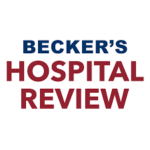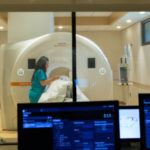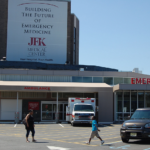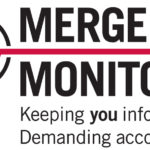Impact of Hospital Mergers
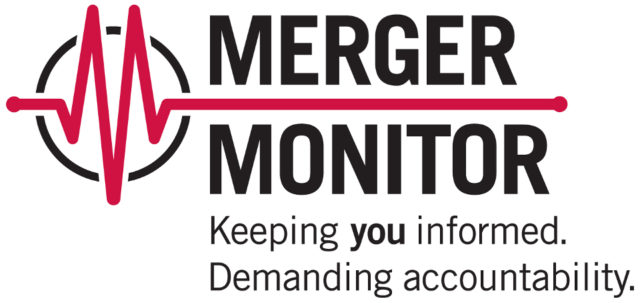
While hospital mergers have been on the rise in recent years, they are not new to the landscape of health care. Studies have shown there is the potential for both positive and negative affects to patients/consumers, communities, and employees.
Arguments for supporting hospital mergers in the past have focused on efficiency and lowered costs due to higher volume, such as savings in purchasing. Along those same lines, some say the quality of care will improve because of medical collaboration and systematizing of best practice protocols. In theory, with greater efficiency hospitals may provide more care while lowering the cost of care.
Recent arguments for supporting hospital mergers have focused on the presumption that due to changes in health care with the enactment of the Affordable Care Act (ACA), such as the changes with Medicare and Medicaid reimbursement/reporting, that it is financially necessary for hospitals to merge. The driving force behind this is the ACA promulgated-need for data collection that requires sophisticated IT programs to capture the data the federal government requires. Hospitals say that the cost of these data collection programs along with the maintenance makes it unaffordable to smaller community hospitals or hospitals that are in financial difficulty; therefore, it is more cost efficient to merge hospitals and maintain one large data system for many hospitals.
Another requirement of the ACA involves “coordination of care,” which hospitals feel will only happen efficiently if there are more hospitals making up a healthcare entity. This relies on stylized systems such as electronic patient record tracking and forwarding, for example.
The arguments against hospital mergers focus on consumer (patient) costs increasing when there is a dearth of competition: when the same hospital system controls the majority of care in any given area, that system also controls what it charges for services when there is no other system to vie for patients. The reasoning is that more providers make for greater competition and therefore lower prices.
Mergers may affect delivery and availability of services as hospitals work toward greater efficiency in cost control. When efficiency becomes the goal, employees may become redundant, with staff layoffs a possibility. All of these factors affect a community, either through lost jobs, lost revenue to local stores and businesses, travel for services that were once offered nearby, higher out-of-pocket costs, and possibly lower quality care.
In recent years the Federal Trade Commission has challenged several hospital and/or doctor practice mergers, and the courts have made the mergers “unwind” even after the merger has been completed. While these cases are quite prominent in healthcare news of late and make it appear an FTC challenge is a common occurrence, Edith Ramirez, then chairwoman of the commission in 2014, said the FTC had challenged less than 1 percent of hospital deals.[1] When the FTC feels unequivocally that a merger between two systems, two hospitals, or even between a hospital and a doctor group practice threaten the likelihood of healthy competition, they will intercede.
Some hospitals think that antitrust laws are antithetical to the goals of the ACA because they limit the ability of doctors and hospitals to collaborate; the FTC believes both laws share the same goals of lower costs, increasing access to care, and improving quality, all by cultivating competition.[2]
At a 2013 annual conference, NJ healthcare leaders met to discuss the future state of healthcare in NJ post-ACA before actual implementation. Then president and CEO of Robert Wood Johnson University Hospital Hamilton foresaw “five or six” systems dominating healthcare in NJ by 2023.[3] Dr. Kenneth Sable, executive vice-president and COO of Saint Peter’s Healthcare System predicted that hospitals would build strength in specialized areas, with different hospitals offering different services.[4] Dr. Mary Campagnolo, president of the Medical Society of New Jersey, stated that doctors would be making more data-driven decisions for patients. She noted that if done right “It should drive down costs, [and] if it’s not doing that, then we’re probably not doing the right things…[for] a much more efficient state of healthcare.”[5] Are these the scenarios you want for the future of NJ healthcare?
Below are some common concerns and/or outcomes when hospitals or hospital systems merge:
PATIENTS/CONSUMERS
- Director of the Rutgers Center for State Health Policy Joel Cantor stated, “…mergers offer opportunities to improve care as hospitals pool resources to improve the delivery system. But they can also be worrisome. There is ample evidence that greater concentration in hospital markets leads to higher negotiated rates with insurers.”[6]
- A 2011 Congressional Budget Office working paper found that mergers increase treatment intensity while additionally increasing inpatient mortality among heart disease patients.[7]
- Hospital concentration reduces quality of care for some procedures.[8]
- Quality of care improves under tougher competition, as well as under an administered pricing system (Medicare/Medicaid).[9]
- Competition improves quality of care even when prices are market determined.[10]
- Women’s access to reproductive healthcare services may be curtailed if a merger occurs between a secular hospital and a Catholic hospital system unless a “carve-out” is requested that will protect patients’ rights to accessing comprehensive reproductive health services.[11]
- Hospital re-admissions may increase for heart attack patients and newborns may experience early discharge with hospital mergers.[12]
- Most of the leading quality and safety successes in medicine occur in collaboratives formed by competing hospitals, rather than collaboratives within one hospital system.[13]
- Large hospital systems may fail to improve outcomes and also encourage greater utilization of services; more treatment may lead to sub-optimal care, over-treatment, and can account for higher mortality rates.[14]
COMMUNITIES
- Communities may lose access to services and care, if not immediately, then very possibly in the future as services consolidate in the new system.
- Loss of revenue for local businesses if there are extensive employee layoffs or closures.
- Job losses within the community for hospital staff living in same locale.
- Consolidation of services may lead to hospitals being incentivized to provide the most profitable services and treatment plans rather than offer a full range of both.[15]
- A service area monopoly puts a community at risk of no health care or limited access to care if the health system fails.
- As with the 2008 financial crisis when large banks were bailed out with taxpayer money, “too big to fail,” hospital system failures could become the financial burden of the communities with a similar bailout plan for the hospital system.
HEALTHCARE COSTS
- Ward Sanders, president of the New Jersey Association of Health Plans stated, “Provider and hospital consolidation are often sold as measures to increase ‘efficiency,’ but ironically they often result in higher prices for employers and individuals as efficiencies can be overshadowed by higher charges that larger healthcare systems often leverage in negotiations [with insurers].”[16]
- A 2012 Robert Wood Johnson Foundation study updating its previous 2006 study found that “increases in hospital market concentration lead to increases in the price of hospital care.” The study noted that these increases get passed along to consumers in the form of higher premiums, lower benefits, and lower wages. Hospital mergers in concentrated markets lead to more significant price increases.[17]
- A 2014 New York Times editorial board opinion noted the increasing prices for services after Massachusetts General and Brigham and Women’s Hospitals merged, as well as purchasing domination of doctors’ practices; Massachusetts’ AG attempted to rein in costs and bargaining power through a negotiated deal.[18]
- When the FTC attempted to quash a proposed merger between Illinois’ Advocate Health Care and North Shore University Health System, Debbie Feinstein, the FTC’s director of Bureau of Competition, said, “This merger is likely to significantly increase the combined system’s bargaining power with health plans, which in turn will harm consumers by bringing about higher prices and lower quality.”[19]
- A UCal Berkeley study by James C. Robinson in 2011 found “that private insurers paid 13 to 25 percent more for procedures in areas where there was less competition.”[20] These higher charges mean higher premiums, co-pays, deductibles, and hospital bills.
- Director of the Federal Trade Commission’s bureau of economics Martin S. Gaynor said, “Hospitals that face less competition charge substantially higher prices.” He noted that the price increases could be “as high as 40 percent to 50 percent.”[21]
- Associate professor of economics at Clemson University Matthew S. Lewis stated, “Acquisitions of hospitals by large national chains…may not increase hospital concentration in the affected local markets, but could nevertheless generate higher prices.”[22]
- An article in Forbes noted that concentrated hospital markets can increase prices by as much as 44 percent.[23]
WORKERS
- A 2014 study found that hospital mergers create an increase in long-term sick absences in the first year and then again 2-4 years after the merger, significantly higher than normal. The authors state that “mergers and the quest for higher productivity may come at a price, i.e. higher levels of long-term sickness absence.” The increase in long-term sickness absence “represents a large monetary loss, and a loss of workforce capacity.”[24]
- Stress levels increase due to multiple changes in systems management, HR management, job insecurity, and newfound employee competitiveness between former competing facilities.
- Threat of layoffs, especially for the employees whose facility is taking the subordinate role.
- One study found that “hospital mergers have a small, transient positive impact on staff job satisfaction in the year immediately before and after merger approval. Continuous staff support and management of staff expectations throughout a merger may help increase staff job satisfaction during the challenging period of merger.”[25]
- The upheaval created by mergers can be related to lower job satisfaction and increased burnout among nurses.[26]
[1] Robert Pear. “F.T.C. Wary of Mergers by Hospitals.” New York Times, 17 September 2014, http://www.nytimes.com/2014/09/18/business/ftc-wary-of-mergers-by-hospitals-.html?_r=0.
[2] Pear, supra.
[3] Andrew Kitchenman. “Healthcare Leaders Envision a Shared Future.” NJSpotlight, 9 May 2013,http://www.njspotlight.com/stories/13/05/08/healthcare-leaders-envision-a-shared-future/
[4] Kitchenman, supra.
[5] Kitchenman, supra.
[6] Beth Fitzgerald. “Hackensack, Meridian to merge, forming state’s largest health system.” NJBIZ, 16 October 2014,http://www.njbiz.com/article/20141016/NJBIZ01/141019838/hackensack-meridian-to-merge-forming-states-largest-health-system
[7] Tamara B. Hayford.”The Impact of Hospital Mergers on Treatment Intensity and Health Outcomes.” Congressional Budget Office, Working Papers Series, October 2011, https://www.cbo.gov/sites/default/files/112th-congress-2011-2012/workingpaper/10-06-2011-Hospital_Mergers_1.pdf
[8] The Synthesis Project. “The impact of hospital consolidation – Update.” Robert Wood Johnson Foundation, June 2012,http://www.rwjf.org/content/dam/farm/reports/issue_briefs/2012/rwjf73261
[9] The Synthesis Project, supra.
[10] The Synthesis Project, supra.
[11] Merger Watch. “Hospital Mergers: Creative Solutions.” Website accessed 6 January 2016, http://www.mergerwatch.org/creative-solutions/
[12] Vivan Ho and Barton H. Hamilton. “Hospital mergers and acquisitions: does market consolidation harm patients?” Journal of Economic Health, Volume 19, Issue 5, pp 767-791, September 2000.
[13] Tim Xu, et al. The Potencial Hazards of Hospital Consolidation: Implications for Quality, Access, and Price.” JAMA, Volume 314, No. 13, 6 October 2015.
[14] Xu, supra.
[15] Xu, supra.
[16] Bob Herman. “Hackensack, Meridian merger may lead to new health insurance forays.” Modern Healthcare, 17 October 2014,http://www.modernhealthcare.com/article/20141017/NEWS/310179961
[17] The Synthesis Project, supra.
[18] The Editorial Board. “The Risks of Hospital Mergers.” The New York Times, 6 July 2014, http://www.nytimes.com/2014/07/07/opinion/the-risks-of-hospital-mergers.html
[19] Lisa Schencker. “FTC challenges NorthShore, Advocate mega-merger in Illinois.” Modern Healthcare, 18 December 2015,http://www.modernhealthcare.com/article/20151218/NEWS/151219865
[20] Marsha Mercer. “Hospital Mergers May Be Good for Business, But Patients don’t Always Benefit.” AARP Bulletin, June 2013,http://www.aarp.org/health/medicare-insurance/info-06-2013/hospital-mergers.html
[21] Pear, supra.
[22] Pear, supra.
[23] Avik Roy. How Hospital Mergers Increase Health Costs, and What to Do About It.” Forbes, 1 March 2012,http://www.forbes.com/sites/theapothecary/2012/03/01/how-hospital-mergers-increase-health-costs-and-what-to-do-about-it/
[24] Lars Erik Kjekshus, et al. “The effect of hospital mergers on long-term sickness absence among hospital employees: a fixed effects multivariate regression analysis using panel data.” BMC Health Services Research, 2014, 14:50, http://www.biomedcentral.com/1472-6963/14/50
[25] Ka Keat Lim. “Impact of hospital mergers on staff job satisfaction: a quantitative study.” Human Resources for Health, 2014, 12:70,http://www.human-resources-health.com/content/12/1/70
[26] Bonnie M. Jennings. “Restructuring and Mergers.” In: Hughes, R.G., editor. Patient Safety and Quality: An Evidence-Based Handbook for Nurses. Rockville (md): Agency for Healthcare Research and Quality (US); 2008 Apr. Chapter 24,http://www.ncbi.nlm.nih.gov/books/NBK2675/
News
N.J. Dept. of Health approves HRH’s certificate of need for Bayonne Medical Center
HRH has owned the Bayonne Medical Center property since July 2020 and has taken a variety of actions to become its operator, including most recently being named interim operator of the acute care facility during CarePoint Health’s ongoing bankruptcy.
Hudson Regional Hospital gets state board stamp of approval for Bayonne Medical Center takeover
Bayonne Medical Center’s future should be in Hudson Regional Hospitals (HRH) hands, the State Health Planning Board affirmed in a vote Thursday, a win for community members and officials who advocated for the transition after years of uncertainty.
Jersey City Council passes measure asking HRH to honor union contracts
The resolution, which was a late addition to the agenda, was sponsored by Ward E Councilman James Solomon and co-sponsored by Council President Joyce Watterman and Ward B Councilwoman Mira Prinz-Arey.
Transfer of BMC to Hudson Regional Hospital takes major step with recommendation by state DOH
The transfer of Bayonne Medical Center, one-third of the cash-strapped CarePoint Health system, to Hudson Regional Hospital has cleared a major hurdle.
New operator for Bayonne hospital promises a new day
Hudson Regional Health CEO Nizar Kifaieh delivered good news to a curious staff at Bayonne Medical Center on Tuesday morning...
Hudson Regional Hospital vows to replicate its success story in Bayonne. Employees, officials say now is the time
After years of lawsuits and false starts, Hudson Regional Hospital (HRH) is finally getting a shot at state approval to take over operations at BMC, one of three hospitals in the cash-strapped CarePoint Health System.
Once considered Bayonne hospital’s savior, minority ownership group aims to halt CarePoint bankruptcy, merger
The surgicenter group that four years ago was hailed as the savior for the cash-strapped Bayonne Medical Center is now attempting to halt the CarePoint Health bankruptcy and merger plans.
The state is considering a new owner for Bayonne Medical Center. A union is demanding financial guarantees
A healthcare workers union is asking for a guarantee the new owners will commit $50 million to Bayonne Medical Center and keep it open for at least 10 years.
HPAE Press Release Regarding CarePoint Health Certificate of Need and Bankruptcy Hearing
HPAE will continue to advocate for its members and their patients to make sure all their rights are protected, and the hospitals remain open.
CarePoint Health, more than $108 million in debt, declares bankruptcy
CarePoint Health, the Hudson County non-profit healthcare system teetering on the brink of financial collapse, is more than $108 million in debt, according to bankruptcy documents filed Sunday in U.S. Bankruptcy Court in Delaware.
CarePoint Health, more than $100 million in debt, declares bankruptcy
CarePoint Health, the Hudson County non-profit healthcare system teetering on the brink of collapse, filed for bankruptcy Sunday in documents that revealed its debt is more than $100 million.
Moulick out as CEO of struggling NJ hospital system as new managers move forward
The CEO and president of a Hudson County hospital network on the brink of collapse has been replaced by the founder of the company planning to take over two of the hospitals.
Cooper Health officially acquires South Jersey health system, renames Cape Regional flagship hospital
As of Monday, Cape Regional Health System, a main health care organization serving Cape May and Atlantic counties, has officially joined Camden-based Cooper University Health Care.
Definitive agreement outlines Atlantic Health, Saint Peter’s partnership
The Morristown- and New Brunswick-based health care systems announced signing a definitive agreement. At the center is a shared focus on patient-centric, high-quality care and cost-effective services.
New Jersey hospital systems move closer to merger
After more than 18 months of work and planning, two New Jersey hospital systems are on the cusp of coming together.
Lax antitrust enforcement linked to rising hospital prices
A new study co-authored by Yale economist Zack Cooper links rising prices for hospital care to lax antitrust enforcement.
Hudson Regional Hospital and CarePoint Health combining to form Hudson Health System
Once rivals fighting over who would operate three local hospitals, Hudson Regional Hospital and CarePoint Health have agreed to terms to combine and form Hudson Health System.
Atlantic Health, Saint Peter’s Healthcare move toward strategic partnership
Atlantic Health System and Saint Peter’s Healthcare System announced Jan. 31 signing a Letter of Intent (LOI) to establish a strategic partnership.
Inspira Health integrates Salem Medical Center into system
Inspira Health recently announced that the integration of Salem Medical Center into the health system is complete, as of Sunday. The hospital has been rebranded as Inspira Medical Center Mannington.
Who polices hospitals merging across markets? States give different answers
Cross-market deals accounted for more than half of all hospital mergers and acquisitions during the last decade, according to a paper from experts on antitrust law.
Inspira Health adds Salem Medical Center to network
Inspira Health announced the addition of Salem Medical Center to its system Dec. 16, acquiring its hospital building, ambulatory surgery center and physician offices, effective immediately.
150-year-old N.J. hospital will merge with Capital Health, offer only ER and outpatient care
St. Francis Medical Center, a nearly 150-year-old institution in Trenton, will offer only emergency room and outpatient services starting Dec. 21, under a recently approved merger agreement with Capital Health, officials announced Thursday.
Cooper University Health, Cape Regional Health sign LOI to merge
Cooper University Health Care and Cape Regional Health System announced that the two systems have signed a Letter of Intent to merge.
New Jersey hospital to close under proposed deal
St. Francis Medical Center in Trenton, N.J., would close and many of its services would be shifted to another hospital if a proposed transaction between Capital Health and Trinity Health is approved, according to the Philadelphia Business Journal.
FTC blocks merger of two NJ hospitals less than a mile apart
The Federal Trade Commission announced Tuesday that two hospital systems in New Jersey that were planning to merge have canceled those plans, following an FTC complaint that a merger would be anticompetitive.
Merger plans abandoned: Hackensack Meridian, Englewood Health terminate agreement
It's over. Hackensack Meridian Health and Englewood Health have officially dropped their plans for a merger, in a move that could have reverberations across the U.S. health care system.
US court blocks merger of Hackensack Meridian and Englewood Health
A federal appeals court on Tuesday blocked the proposed merger of Englewood Health and Hackensack Meridian Health.
Expanded Partnership Between CentraState Healthcare System and Atlantic Health System Approved by State of New Jersey
New Jersey Superior Court Judge Joseph Quinn has accepted New Jersey Acting Attorney General Andrew Bruck’s approval of CentraState Healthcare System and Atlantic Health System’s plans to expand their successful partnership.
The downsides of ‘merger mania’ in healthcare
After a decade of "merger mania," many organizations now are taking a step back and looking to unwind past partnerships or call off deals before they are finalized.
25 attorneys general urge court to block New Jersey hospital merger
A coalition of attorneys general is urging an appellate court to block the merger of Edison, N.J.-based Hackensack Meridian Health and Englewood (N.J.) Health.
Hospital mergers and acquisitions are a bad deal for patients. Why aren’t they being stopped?
Contrary to what health care executives advertise, hospital mergers and acquisitions aren’t good for patients. They rarely improve access to health care or its quality, and they don’t reduce prices. But the system in place to stop them is often...
Hackensack Meridian and Englewood Health fight on in favor of hospital merger
Hackensack Meridian Health has not given up its fight to acquire Englewood Health, despite a federal court order earlier this month.
Deal off for now: Federal judge halts Hackensack Meridian acquisition of Englewood Health
A federal judge this week temporarily blocked Hackensack Meridian Health, one of the state’s largest health care systems, from acquiring Englewood Health.
Thomas Jefferson University says the FTC has dropped opposition to its acquisition of Einstein
Taken from The Philadelphia Inquirer By Harold Brubaker March 1, 2021 Read the article here.
FTC Challenges Hackensack Meridian Health, Inc.’s Proposed Acquisition of Competitor Englewood Healthcare Foundation
New Jersey healthcare system merger would increase price and reduce quality of healthcare
RWJBarnabas, Trinitas clinch definitive merger agreement
Trinitas Regional Medical Center and its affiliates will become part of RWJBarnabas Health under a definitive merger agreement the systems entered into on Nov. 11.
FTC challenges Jefferson-Albert Einstein hospital merger
The Federal Trade Commission said Thursday it will challenge the proposed merger between two Philadelphia-area not-for-profit health systems on the grounds the combination would reduce competition.
Not every N.J. hospital sees need to merge into bigger system — but independents are dwindling
Every year, New Jersey’s health care system moves one merger closer to making independent hospitals a relic of the past.
Independent streak
Hospital mergers are on the rise but standalone facilities are finding ways to survive.
New deals coming
Financial pressures and an increasingly competitive market are driving the consolidation of hospitals in New Jersey. While traditional hospital mergers and acquisitions will continue, an uptick in non-traditional alliances will also occur in 2020.
RWJBarnabas, Saint Peter’s Healthcare to explore merger
Saint Peter’s Healthcare System and RWJBarnabas Health announced on Dec. 16 that they have signed a non-binding letter of intent to explore a potential partnership.
Health Care’s Biggest Problem Is Getting Worse
Many liberals and a growing number of Democratic presidential candidates have embraced a bold idea for reforming America’s broken healthcare system.
Bayonne blues
Bayonne Medical Center is looking for a merger partner amid a consolidation wave, but residents worry about losing access to acute care...
Merger mania shakes up Philadelphia-area health system rankings
The merger mania reshaping the Philadelphia region’s health care industry over the past few years is evident by the changes at the top of this year’s Philadelphia Business Journal ranking of the region’s largest health systems.
RWJBarnabas to buy Christ Hospital and Hoboken University Medical Center
RWJBarnabas, one of the state’s largest health care systems, is set to acquire Christ Hospital and Hoboken University Medical Center in a deal that could drastically change the health care landscape in Hudson County.
FTC to Study the Impact of COPAs
The Federal Trade Commission issued orders to five health insurance companies and two health systems to provide information that will allow the agency to study the effects of certificates of public advantage (COPAs) on prices, quality, access, and innovation...
HPAE Calls for Oversight and Transparency as Englewood Health merges into Hackensack Meridian Health, NJ’s Largest Healthcare Corporation
Statement by Debbie White, RN and President regarding the announcement by Englewood Health on the merger into the Hackensack Meridian Health System
Englewood Medical, one of last independents in region, to merge with Hackensack Meridian
A partnership between Hackensack Meridian Health and St. Joseph's Health announced Wednesday will focus on cancer care Alexis Shanes, North Jersey Record
Trinitas signs LOI with RWJBarnabas Health to join system
Trinitas Regional Medical Center and RWJBarnabas Health announced on Thursday it has signed a Letter of Intent (LOI)...
Report: 3 in 4 hospital markets are now ‘highly concentrated’
Nearly 3 in 4 hospital markets around the U.S. are "highly concentrated," according to a new Healthy Marketplace Index report by the Health Care Cost Institute (HCCI).
Judge OKs Virtua acquisition of Lourdes Health and its hospitals
Judge Paula Dow issued a court order approving the proposed transaction Tuesday morning following a brief hearing at the Olde Historic Courthouse in Mount Holly that featured no objections. MOUNT HOLLY — A Superior Court judge has given the green
NJ AG recommends Virtua-Lourdes deal move forward
The proposed deal calls for Virtua to acquire Lourdes and its hospitals, Lourdes Medical Center of Burlington County in Willingboro and Our Lady of Lourdes in Camden, as well as Lourdes’ nursing school, medical associates and cardiology offices. TRENTON —
One of N.J.’s largest hospital chains looking to expand its turf with another big merger
Taken from NJ.com By Susan K. Livio March 21, 2019 Trinitas Regional Medical Center in Elizabeth is in confidential negotiations to join one of the state’s largest hospital systems, continuing a decade-long frenzy of mergers in New Jersey’s fierce healthcare market,
Hospital Mergers Improve Health? Evidence Shows the Opposite
Many things affect your health. Genetics. Lifestyle. Modern medicine. The environment in which you live and work.
Lourdes Medical Center in Willingboro could become behavioral health, drug treatment hospital
The company’s future plan for the 173-bed Willingboro hospital was revealed in documents filed with the New Jersey Attorney General’s Office as part of the agency’s ongoing review of the proposed merger between the two South Jersey health care systems.
Proposed Virtua-Lourdes merger to proceed without Certificate of Need
Virtua announced in June it signed a definitive agreement with Lourdes’ parent company, Maxis, to acquire Lourdes and its hospitals Lourdes Medical Center of Burlington County in Willingboro and Our Lady of Lourdes in Camden.
Hackensack Meridian Health, Carrier Clinic merger: Projects announced throughout NJ
The merger of Hackensack Meridian Health and Carrier Clinic is official, and executives already have plans underway for several behavioral health projects throughout the region.
The Health 202: House Democrats want more aggressive scrutiny of health-care mergers
Add “hospital consolidation” to the list of health-care problems on which Democrats want to pressure the Trump administration once they take control of the House in January.
$60M in investments could save doomed hospital, bring 300 new jobs
A new name. Millions in investments. Major renovations. New services. Some 300 new employees. Will it be enough to turn around an ailing, nearly 100-year-old hospital in rural South Jersey?
When Hospitals Merge to Save Money, Patients Often Pay More
The nation’s hospitals have been merging at a rapid pace for a decade, forming powerful organizations that influence nearly every health care decision consumers make.
Testimony of Patrice Sharkey of HPAE Local 5142 on Transfer of Ownership of The Memorial Hospital of Salem County, November 8, 2018
Hello, my name is Patrice Sharkey and I am a nurse at Salem Hospital and a member of HPAE Local 5142, which represents 110 nurses at Memorial Hospital of Salem County.
Renowned psychiatric hospital acquired by N.J.’s largest hospital chain
Carrier Clinic, a renowned, century-old psychiatric facility in Somerset County, will merge with Hackensack Meridian Health, the largest hospital chain and healthcare provider in New Jersey...
How Do Healthcare Mergers and Acquisitions Impact Patients?
Healthcare merger and acquisition deals impact patient access to care and care costs, although its up to debate whether it is for better or for worse.
Virtua to Acquire The Lourdes Health System
Taken from the TapInto Camden, June 5, 2018 Camden, NJ—Virtua Health has signed an agreement to acquire Lourdes Health System from Trinity Health, including Our Lady of Lourdes Medical Center in Camden. The boards of Virtua Health and Maxis Health System, an
Health Care Antitrust Enforcement Remains a Top Priority for New FTC Commissioners
On April 27, 2018, the United States Senate confirmed President Trump’s five nominees for Commissioners of the Federal Trade Commission (FTC).
New Owner Eager to Take Over Struggling South Jersey Hospital
South Jersey leaders are cautiously optimistic about the plans of a healthcare facility group to revitalize a long-struggling Salem County hospital.
N.J. largest hospital chain’s next acquisition target is a renowned mental health center
Taken from NJ.com, March 15, 2018 Susan K. Livio Looking to expand its vast holdings in New Jersey to include more addiction treatment and mental health services, Hackensack Meridian Health announced Thursday it was exploring a partnership with Carrier Clinic
Two N.J. hospital chains will explore a merger
Two south Jersey hospital chains announced Thursday they are exploring a merger, a deal that would make them one of the most formidable health care networks in the outer-Philadelphia region.
Saint Peter’s, RWJBarnabas ‘informally’ exploring merger
The trend of big health care systems expanding through mergers should continue this year, and one of the big ones could involve Saint Peter’s University Hospital in New Brunswick and RWJBarnabas Health.
Hackensack Meridian acquires another hospital and is now N.J.’s largest chain
Hackensack Meridian Health Wednesday announced it now owns JFK Medical Center in Edison, a deal that creates the largest hospital chain in New Jersey.
Sale of Meadowlands Hospital Receives Final Approval
The state has approved the sale of Meadowlands Hospital Medical Center, the Secaucus hospital where admissions have plummeted under private ownership, to a multimillionaire real-estate developer who owns a Bergen County surgical center.
Cooper Calls Off Purchase of Lourdes Health System
Cooper University Health Care said Friday it "will no longer pursue the acquisition" of Our Lady of Lourdes Medical Center and other assets of a Catholic-run health system.
HPAE Raises Concerns About HMH-JFK Merger
Last night a dozen HPAE members and staff attended a public hearing on the affiliation of JFK Medical Center with Hackensack Meridian Health (HMH). If the merger goes through, HMH will own 15 hospitals in the state of New Jersey.
Another merger is creating N.J.’s 4th largest hospital chain
Cooper University Health announced Thursday it plans to acquire three Catholic hospitals in central and south Jersey, creating the fourth largest healthcare chain in a state in which mergers have become routine business.
Another N.J. Hospital Merger is Complete as JFK Joins Large Chain
JFK Health in Edison, one of the last few remaining independent hospitals in New Jersey, will merge with one of the largest health provider chains in the state, according to an announcement by top officials at both nonprofit entities on
Penn Medicine to Finalize Merger With Princeton HealthCare System
The University of Pennsylvania Medicine is about to add its first New Jersey member – Princeton HealthCare System.
Moody’s: NJ hospitals face credit pressure from M&A, reduced subsidies
From Becker’s Hospital CFO Increased competition and lower state subsidies for charity care are putting pressure on nonprofit hospitals in New Jersey, according to a recent report from Moody’s Investors Service. Increased healthcare consolidation has impacted hospitals across the nation, and
The Future of Health Care Mergers Under Trump
The proposed health insurance mega-merger between Anthem and Cignaheads to court on Monday, as the companies face off against a Justice Department seeking to block their $48 billion deal.
More NJ Hospitals Merge: Trying To Improve Health — And Financial Stability
A number of forces, not least Obamacare, are prompting hospitals to consolidate. But will some communities lose out in the new healthcare landscape?
FTC wins appeal to halt Penn State Hershey/PinnacleHealth merger
A federal appeals court decision Tuesday pausing Penn State Hershey (Pa.) Medical Center's merger with PinnacleHealth System has placed the Federal Trade Commission's hospital antitrust review program back on stable ground after a couple concerning losses.
HPAE Calls for Protections in Merger of Hackensack and Meridian Health Systems
HPAE members testifed at two public hearings held yesterday to review the proposed merger of the Hackensack University Health Network and Meridian Health. While supporting the pending merger of Hackensack and Meridian, they urged the New Jersey Attorney General
HPAE Locals to Participate in May 4th Hackensack-Meridian Merger Hearing
On May 4, public hearings will be held in Hackensack, NJ and Neptune, NJ to review the Hackensack-Meridian merger. New Jersey’s Attorney General is required to schedule hearings where the public can testify about the merger. HPAE leaders from Jersey
HPAE Local Leaders Meet to Develop United Strategy Toward Meridian-Hackensack Merger
With the merger of Meridian Health and Hackensack University Health Network drawing closer, leaders of the four HPAE locals who will be dealing with the new, mega health system met recently to discuss a united strategy for the merger
Merger With Hackensack Health System Completed
Palisades Medical Center and The Harborage are now officially part of the Hackensack Health System. Palisades Medical Center will be called HackensackUMC Palisades. HPAE has issued a press release on the merger, including the following comment from Local 5030 President Michele
New era begins at Palisades Medical Center as part of Hackensack’s network
From The Record HackensackUMC Palisades, as it will now be known, will become a fully owned part of the system that includes the flagship Hackensack University Medical Center, two jointly owned hospitals in Westwood and Montclair, and the affiliated Englewood
Local 5030 Member Testifies at Public Hearing on Hackensack-Palisades Hospital Merger
At a public hearing before the Office of the NJ Attorney General, held on December 3, Local 5030 VP Zahia Zhort spoke in support, with conditions, of the proposed affiliation agreement between Hackensack University Health Network (HUHN) and Palisades
Thats all, folks - no more news!
Resources
- Impact of Hospital Mergers
- Merger Laws and Regulations
- Merger Glossary
- New Jersey Open Records Act Request Form
- Hudson Regional Hospital and CarePoint Health Merger
- Cooper University Health and Cape Regional Health Merger
- Capital Health System and Trinity Health Saint Francis Medical Center Merger
- Salem Medical Center and Inspira Health Network Merger
- Prospect East Orange General Hospital May Be Purchased By EOH Acquisition Group, LLC
- CentraState Health System and Atlantic Health System Merger
- Einstein Healthcare Network and Jefferson University Hospitals Merger
- Trinitas Health/Trinitas Regional Medical Center and RWJBarnabas Health Merger
- St. Peter’s Healthcare System and RWJBarnabas Health Merger
- Englewood Health and Hackensack Meridian Health Merger
- Virtua Health System and Lourdes (Trinity Health) Hospitals Merger
- Carrier Clinic And Hackensack Meridian Health Merger
- Community Healthcare Associates' Purchase of Memorial Hospital of Salem County
- JFK Health System And Hackensack Meridian Health Merger
- Cooper Health System And Trinity Health Hospitals Merger
- Meadowlands Hospital Medical Center Bought By Real Estate Developer Yan Moshe
- Thomas Jefferson University-Kennedy Health System Merger
- Hackensack University Health Network and Meridian Health Merger
- Saint Michael's Medical Center Bought by Prime Healthcare Services, Inc.
- East Orange Hospital Bought by Prospect Medical Holdings
- Robert Wood Johnson Health Care Corporation and Barnabas Health, Inc.
- RWJ Barnabas Health and Rutgers Proposed Partnership
- Palisades Medical Center and Hackensack University Health Network Merger
- Raritan Bay Medical Centers and Meridian Health Merger
- Hackettstown Regional Medical Center Bought by Atlantic Health System, Inc.
Upcoming Events
No upcoming events at this time.










